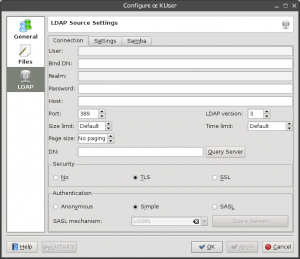KUser/zh-cn: Difference between revisions
m (Created page with "== 安装 ==") |
m (Created page with "'''KUser'''通常不会默认安装,所以需要手动安装它。 '''KUser'''是'''kdeadmin'''包的一部分。 一旦安装好,你就能在<menuchoice>K-菜单 -> 系统 -...") |
||
| Line 16: | Line 16: | ||
== 安装 == | == 安装 == | ||
'''KUser''' | '''KUser'''通常不会默认安装,所以需要手动安装它。 '''KUser'''是'''kdeadmin'''包的一部分。 | ||
一旦安装好,你就能在<menuchoice>K-菜单 -> 系统 -> KUser</menuchoice>找到它,或者用'''KRunner''' <keycap>(Alt+F2) </keycap>启动它,输入 {{Input|1=kuser}}。 | |||
== Using KUser == | == Using KUser == | ||
Revision as of 15:10, 21 January 2011
 |
KUser是个用来管理系统内用户和用户组的工具。 |
特性
- 添加/编辑/删除用户
- 添加/编辑/删除用户组
- 密码管理
安装
KUser通常不会默认安装,所以需要手动安装它。 KUser是kdeadmin包的一部分。
一旦安装好,你就能在找到它,或者用KRunner (Alt+F2) 启动它,输入
kuser
。
Using KUser
After starting KUser a window opens containing two tabs: and .
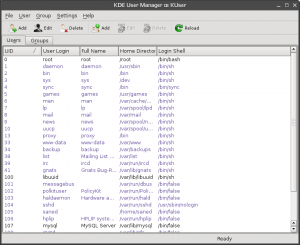
Users
Double-clicking a user opens a dialog with several tabs. The amount of tabs is variable, depending on the type of the user storage system and whether quotas are being used.
User Info
- Modify the user-properties like , , or set/change a for example. You can also .
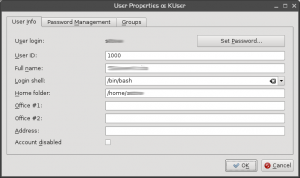
Password Management
- Change password settings, like the time after which a password has to be changed, or set a time at which an account will expire.
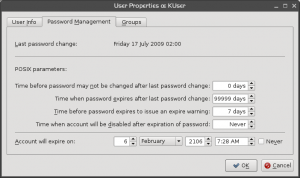
Groups
- Add or remove groups the user belongs to.
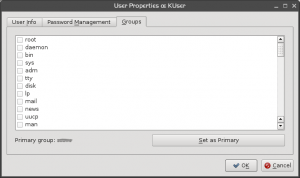
Groups
Double clicking a opens a dialog, where you can of the group and to/from a group.
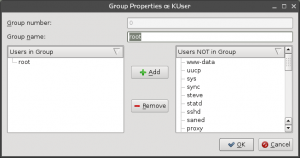
Configure KUser
Click and you can set up defaults for creating a new user:
General
- set the , the or the .
- choose if a will be created and if a (standard configuration files) will be copied to the home folder.
- set a , which creates a own personal group when a user is added and removes it, when the user is removed.
- set a .
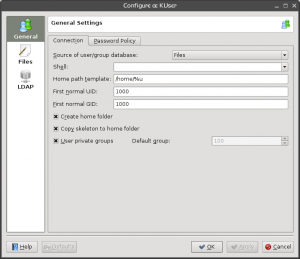
Files
- set default paths for password, group file, password shadow file and group shadow file.
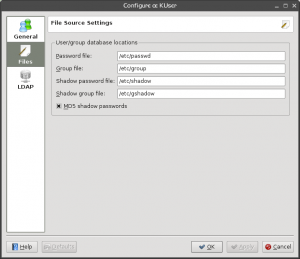
LDAP
- set preferences for users in a local network
